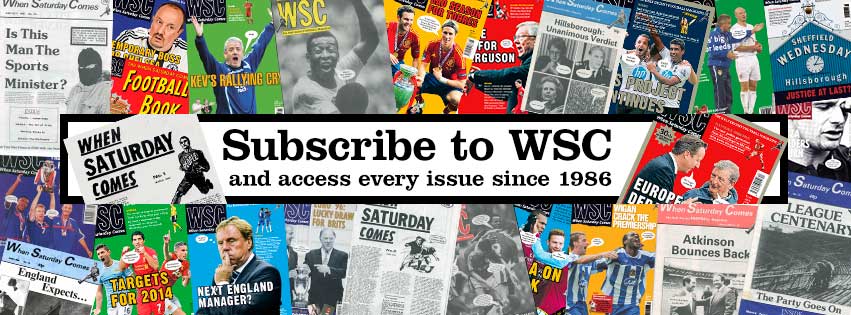The extreme weather and nationwide strike action of the Winter of Discontent played havoc with the fixture list, but inspired some creative thinking from managers and players
30 January ~ Britain appeared to be in a state of complete paralysis in the early weeks of 1979, as what became known as the “Winter of Discontent” held the country in its icy grip. Football supporters – many of whom were deprived of hot dogs and burger baps on matchdays due to an ongoing bakers’ strike in November – were advised to leave grounds promptly at the end of matches after the clocks changed, so that floodlights could be switched off due to power shortages. A Match of the Day interview with Bobby Robson after Ipswich’s 4-1 defeat at Highbury in early November had to be cut short when the stadium was plunged into darkness.
England’s friendly at Wembley against Czechoslovakia appeared in serious doubt in the hours leading up to the game when the floodlights cut out, but it went ahead, allowing Viv Anderson to become the first black player to represent England. Derby County manager Tommy Docherty warned supporters to “behave themselves at games, because police and emergency services will be needed at places other than football grounds over the next few months if things continue to get worse”.
After blizzards blew in on New Year’s Eve, there was widespread disruption across all four divisions. Over 100 league matches were postponed, dozens were abandoned and, of the matches that did go ahead, attendances were severely hit due to the problems with road and rail services. By mid February, Liverpool led an uneven, higgledy-piggledy Division One table with 41 points from 25 games, five points ahead of Arsenal who had played 27 matches. Further down the table, reigning champions Nottingham Forest (played 23) were three points ahead of a Bristol City side who had already played six games more.
The FA Cup draw was also thrown into disarray, with the third round – scheduled for January 6 – reduced to just four matches. One tie between Wrexham and Stockport wasn’t contested until February 6. The knock-on effect was that the fourth round rumbled on into early March, in some cases. One prolonged FA Cup tie that survived the weather was the Arsenal v Sheffield Wednesday third round marathon. Gunners manager Terry Neill later protested when goalkeeper Pat Jennings was pelted with snowballs every time Wednesday attacked. An unsympathetic Wednesday boss Jack Charlton responded: “The conditions were far worse here last week, I don’t know what Terry is complaining about.” Arsenal finally prevailed after playing Wednesday five times between January 6 and January 22.
Clubs, players and managers were creative in trying to circumnavigate the freezing conditions. On New Year’s Day, less than 48 hours after a memorable 5-3 win at Old Trafford, West Bromwich Albion manager Ron Atkinson ordered his in-form side to wear trainers on a snowbound Hawthorns pitch. “I got the idea from West Germany,” Atkinson commented after his side beat Bristol City 3-1. “My players told me that the boots helped them keep their balance excellently.” Queens Park Rangers rigged up what the press reported as a “giant condom” in an attempt to thaw out the Loftus Road pitch, and the subsequent damage it caused to the grass was a key factor behind the club’s decision to introduce Astroturf a couple of seasons later. Most memorably, Leicester City’s Keith Weller, aghast at the conditions which had caused the postponement of most of the football programme that icy day in January 1979, wore white tights under his shorts, ignoring the ridicule from the terraces as he scored in his team’s 3-0 victory over Norwich in the FA Cup third round.
As the thaw set in, the country slowly emerged from hibernation. Gravediggers called off their industrial action, and the football programme gradually returned to normal as teams played catch-up on mudheap pitches.
The deep freeze in early 1979 may belong to a bygone era, but England’s leading lights were looking to the future. Liverpool announced a shirt sponsorship with Japanese company Hitachi which would commence at the start of the following season, and Nottingham Forest confirmed the signing of England’s first million-pound footballer, Trevor Francis. The Office of Fair Trading was forced to intervene as the BBC and ITV fought it out over the right to broadcast Saturday night football.
Just as what became Thatcherism was about to win out at the 1979 General Election, football was now entering a new world of million-pound transfer madness, sponsorship deals and the increasing influence of TV. Jon Spurling
This article first appeared in WSC 383, February 2019. Subscribers get free access to the complete WSC digital archive – you can find out more here
